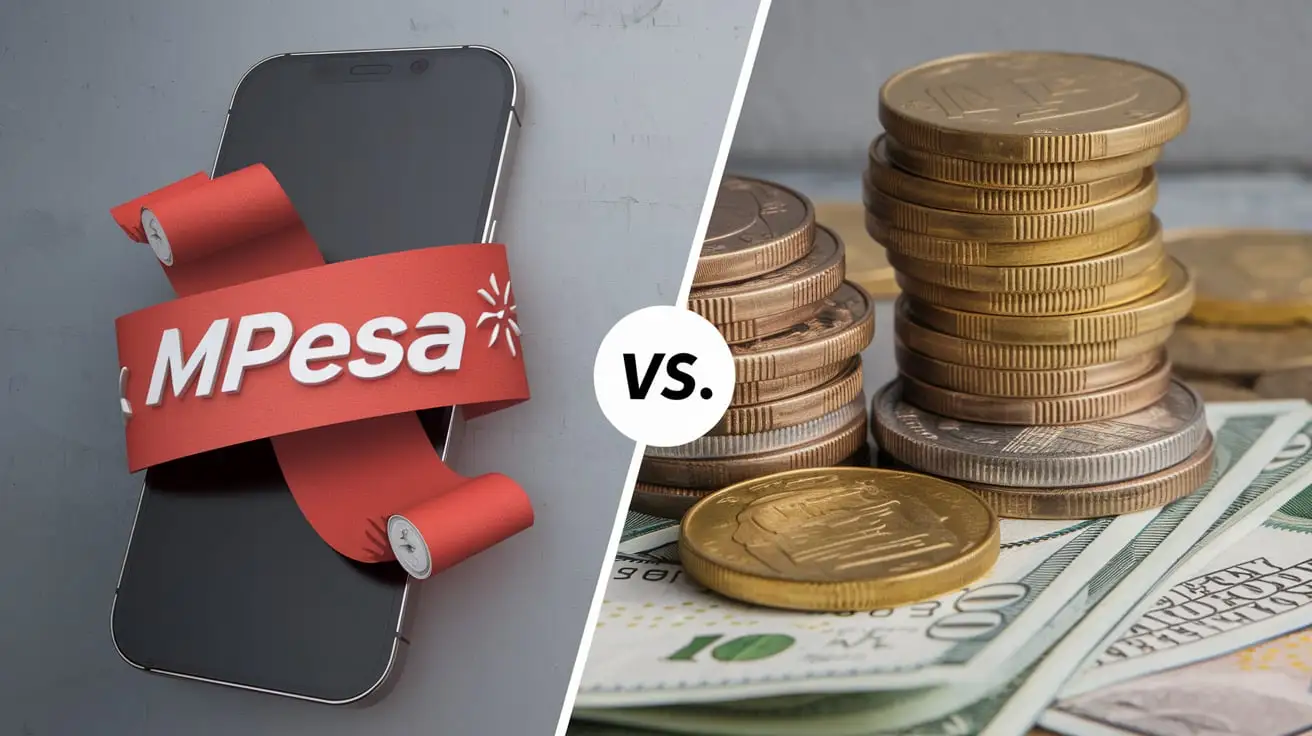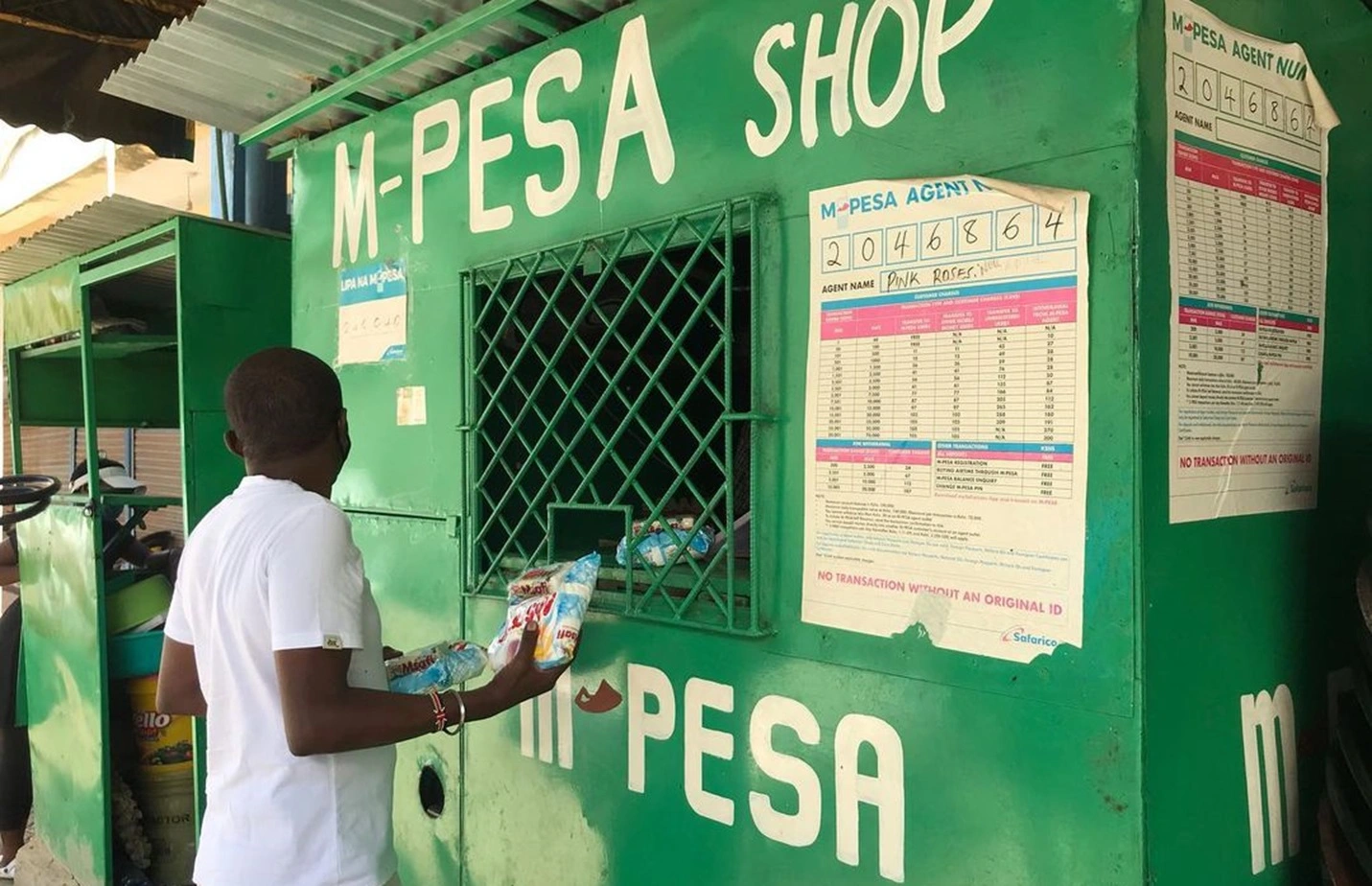
Cash and MPESA are the popular mode of payments and transactions for foreign tourists in Kenya. M-PESA is a mobile money transfer service that is offered by Safaricom.
Choosing the right method of payment will ensure smooth experience when paying for accommodations, shopping, dining, or tipping.
Here is a high-level summary comparing M-Pesa and cash for international tourists in Kenya:
|
Aspect |
M-Pesa |
Cash |
|
Convenience |
Widely accepted for most transactions |
Useful for small transactions and tips |
|
Safety |
Protected by a PIN, reduces theft risk |
Carrying large amounts can be risky |
|
Setup |
Requires a Safaricom SIM card and registration |
No setup required, but exchange bureaus needed |
|
Transaction Limits |
Daily and transaction limits apply |
No transaction limits, but managing large sums is risky |
|
Usage |
Ideal for transport, meals, shopping |
Necessary for tipping and small vendors |
|
Exchange Rates & Fees |
May involve transaction fees |
Varies, better rates often found away from airports |
|
Fraud & Scams |
Lower risk if PIN is secure |
Higher risk in less regulated exchange bureaus |
|
Integration |
Can be linked to bank accounts and used online |
Limited integration with online services |
|
Availability |
Extensive network coverage, even in rural areas |
Dependence on ATMs and banks |
|
Emergency Use |
Easy to receive money from abroad |
Challenging if banks or ATMs are not nearby |
|
Cultural Preference |
Preferred by many locals for convenience and security |
Still widely used but less preferred for large transactions |
Convenience and Accessibility
M-Pesa Usage and Benefits
M-Pesa is widely accepted across Kenya, making it the go-to option for most transactions. It's incredibly convenient for paying for goods and services in various settings, including:
- Hotels: Many hotels accept M-Pesa for room payments and other services.
- Supermarkets and Malls: Major retail outlets support M-Pesa transactions.
- Public Transport: Use M-Pesa to pay for buses, matatus, and even some taxi services.
- Restaurants and Cafes: Many dining establishments accept M-Pesa for quick and easy payments.
Use Cash When It is Necessary
While M-Pesa is highly convenient, cash remains useful in several scenarios:
- Small Transactions: For buying items from street vendors or in markets where electronic payments might not be available.
- Tipping: It's customary to tip service providers in cash.
- Remote Areas: Some rural areas may not have robust M-Pesa infrastructure, making cash necessary.
Always carry a mix of smaller denominations for ease of use in these situations.
Payment Safety for Travel Transactions
M-Pesa has Enhanced Security
One of the significant advantages of using M-Pesa is the enhanced security it offers:
- PIN Protection: Transactions are protected by a personal identification number (PIN), reducing the risk of theft.
- No Need to Carry Large Sums: By using M-Pesa, you avoid carrying large amounts of cash, which can be risky.
Cash Involves Risks and Precautions
Carrying cash, especially in large amounts, can be risky:
- Target for Theft: Tourists carrying large sums can become targets for thieves.
- Practical Tips: To minimize risk, carry only what you need for immediate expenses and keep larger amounts securely stored.
Exchange Rates and Fees
When traveling to Kenya, understanding the nuances of exchange rates and associated fees for both M-Pesa and cash is crucial. Each method comes with its own set of considerations that can impact how much value you get from your money.
M-Pesa Fees and Considerations
Using M-Pesa offers a convenient and secure way to manage money, but it does come with certain fees:
- Transaction Fees: M-Pesa charges fees for various services, including sending money, withdrawing cash from an M-Pesa agent, and sometimes for making payments. These fees can vary based on the amount of money involved and the type of transaction.
- Competitive Exchange Rates: When you load your M-Pesa account with foreign currency, the exchange rates are generally competitive, though it’s always good to check the rates offered by different agents.
- Convenience Over Cost: While there are fees associated with M-Pesa transactions, the convenience and security it provides often outweigh these costs. You can perform transactions from your phone without needing to carry cash, making it a preferred choice for many tourists.
Cash Helps in Maximizing Value
Handling cash in Kenya involves being strategic about where and how you exchange your money to maximize value:
- Exchange Rates: Exchange rates can vary significantly depending on where you exchange your money. Banks and authorized exchange bureaus typically offer better rates than those found at airports or street exchangers. It’s wise to shop around and compare rates to get the best deal.
- Avoiding Scams: To avoid being scammed, always use reputable exchange bureaus or banks. Avoid street exchangers who might offer seemingly attractive rates but could end up shortchanging you. Always count your money before leaving the exchange counter.
- No Fees, But Risks: While there are no transaction fees when using cash, carrying large amounts can be risky. There is also the inconvenience of constantly needing to find reliable places to exchange money, especially in remote areas.
Fraud and Scams when using MPESA vs. Cash
When traveling, it’s essential to be aware of potential fraud and scams associated with both M-Pesa and cash transactions. Each method carries its own risks, and knowing how to protect yourself can save you from financial loss and inconvenience.
M-Pesa has a Lower Risk of Fraud
M-Pesa is designed with security features that help protect users from fraud:
- PIN Security: All M-Pesa transactions are protected by a personal identification number (PIN). Ensure you keep your PIN confidential and avoid sharing it with anyone.
- Suspicious Messages: Be wary of unsolicited messages or calls asking for your M-Pesa PIN or personal information. Safaricom, the service provider, will never ask for your PIN via message or call.
- Verification of Transactions: Always double-check the recipient’s phone number and the amount before confirming any transaction to avoid sending money to the wrong person.
Cash has a Higher Risk of Scams
Handling cash presents several risks, especially for tourists unfamiliar with the local environment:
- Counterfeit Money: Be cautious of receiving counterfeit notes. Familiarize yourself with the appearance of genuine Kenyan currency and check notes carefully during transactions.
- Street Exchangers: Avoid exchanging money with unauthorized street exchangers. They might offer attractive rates but often engage in scams such as shortchanging or giving counterfeit money.
- Pickpocketing and Theft: Carry only the amount of cash you need for the day and keep it in a secure place. Use a money belt or a hidden pouch to minimize the risk of pickpocketing.
By staying vigilant and taking necessary precautions, you can minimize the risk of fraud and scams during your stay in Kenya.
Integration with Other Services
Each payment method offers different levels of integration and convenience for various activities.
M-Pesa Provides Seamless Integration
M-Pesa integrates smoothly with many services, making it a versatile option for tourists:
- Bank Accounts: You can link your M-Pesa account to a Kenyan bank account, allowing you to transfer money between your bank and M-Pesa seamlessly. This integration is useful for managing larger sums of money securely.
- Online Transactions: M-Pesa is widely accepted for online payments. You can use it to book flights, hotels, and even pay for online shopping. This feature provides a convenient way to handle your travel logistics without needing to carry cash.
- Booking Services: Many tour operators, ticketing services, and event organizers accept M-Pesa. This makes it easy to book safaris, excursions, and other activities while traveling in Kenya.
Cash has a Limited Integration
While cash is universally accepted, it lacks the convenience of integrating with other services:
- Physical Presence: Using cash often requires you to be physically present to make payments, which can be limiting for online bookings and transactions.
- No Online Utility: Cash cannot be used for online purchases or services, meaning you’ll need alternative payment methods for any online activities.
- Traditional Transactions: Cash is best suited for traditional, in-person transactions such as paying street vendors, market stalls, and in rural areas where electronic payment infrastructure may be lacking.
